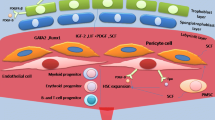Abstract
Human placental mesenchymal stem cells (hPMSCs), for the treatment of fulminant hepatic failure, have been widely studied. Only a few studies have investigated the effect of the subtype CD200+hPMSCs on regeneration of human hepatocytes. CD200+hPMSCs can down-regulate activity of several immunocytes and suppress TNF-α secretion from macrophages via the CD200-CD200R axis. We have investigated the influence of CD200-positive human placenta chorionic mesenchymal stem cells (CD200+hPCMSCs) on metabolism, proliferation and apoptosis of human hepatocytes in vitro. CD200+hPCMSCs promote urea synthesis, albumin secretion and hepatocytes proliferation at co-culture ratios of 1:1 and 3:1. Additionally, CD200+hPCMSCs inhibit hepatocyte apoptosis via up-regulation of an anti-apoptotic protein, Bcl-xL. Thus, CD200+hPCMSCs can provide supportive benefit for the regeneration of human hepatocytes and also have immunosuppressive properties. Therefore, CD200+hPCMSCs may be an ideal candidate for stem cell-based therapy in hepatic failure.




Similar content being viewed by others
References
Abumaree MH, Al Jumah MA, Kalionis B, Jawdat D, Al Khaldi A, AlTalabani AA, Knawy BA (2013) Phenotypic and functional characterization of mesenchymal stem cells from chorionic villi of human term placenta. Stem Cell Rev 9:16–31
Bardelli A, Longati P, Albero D, Goruppi S, Schneider C, Ponzetto C, Comoglio PM (1996) HGF receptor associates with the anti-apoptotic protein BAG-1 and prevents cell death. EMBO J 15:6205–6212
Block GD, Locker J, Bowen WC et al (1996) Population expansion, clonal growth, and specific differentiation patterns in primary cultures of hepatocytes induced by HGF/SF, EGF and TGF alpha in a chemically defined (HGM) medium. J Cell Biol 132:1133–1149
Chastre A, Bélanger M, Beauchesne E, Nguyen BN, Desjardins P, Butterworth RF (2012) Inflammatory cascades driven by tumor necrosis factor-alpha play a major role in the progression of acute liver failure and its neurological complications. PLoS One 7:e49670
Gómez-Aristizábal A, Keating A, Davies JE (2009) Mesenchymal stromal cells as supportive cells for hepatocytes. Mol Ther 17:1504–1508
Jung J, Choi JH, Lee Y, Park JW, Oh IH, Hwang SG, Kim KS, Kim GJ (2013) Human placenta-derived mesenchymal stem cells promote hepatic regeneration in CCl4-injured rat liver model via increased autophagic mechanism. Stem Cells 8:1584–1596
Lin H, Xu R, Zhang Z, Chen L, Shi M, Wang FS (2011) Implications of the immunoregulatory functions of mesenchymal stem cells in the treatment of human liver diseases. Cell Mol Immunol 8:19–22
Nagaki M, Iwai H, Naiki T, Ohnishi H, Muto Y, Moriwaki H (2000) High levels of serum interleukin-10 and tumor necrosis factor–alpha are associated with fatality in fulminant hepatitis. J Infect Dis 182:1103–1108
Najar M, Raicevic G, Jebbawi F et al (2012) Characterization and functionality of the CD200-CD200R system during mesenchymal stromal cell interactions with T-lymphocytes. Immunol Lett 146:50–56
Nishino M, Iimuro Y, Ueki T, Hirano T, Fujimoto J (2008) Hepatocyte growth factor improves survival after partial hepatectomy in cirrhotic rats suppressing apoptosis of hepatocytes. Surgery 144:374–384
Parekkadan B, van Poll D, Suganuma K, Carter EA, Berthiaume F, Tilles AW, Yarmush ML (2007) Mesenchymal stem cell-derived molecules reverse fulminant hepatic failure. PLoS One 2:e941
Pietilä M, Lehtonen S, Tuovinen E et al (2012) CD200 positive human mesenchymal stem cells suppress TNF-alpha secretion from CD200 receptor positive macrophage-like cells. PLoS One 7:e31671
Puglisi MA, Tesori V, Lattanzi W et al (2011) Therapeutic implications of mesenchymal stem cells in liver injury. J Biomed Biotechnol 2011:860578
Rygiel TP, Meyaard L (2012) CD200R signaling in tumor tolerance and inflammation: a tricky balance. Curr Opin Immunol 24:233–238
Sun R, Jaruga B, Kulkarni S, Sun H, Gao B (2005) IL-6 modulates hepatocyte proliferation via induction of HGF/p21cip1: regulation by SOCS3. Biochem Biophys Res Commun 338:1943–1949
Yang Y, Li J, Pan X et al (2013) Co-culture with mesenchymal stem cells enhances metabolic functions of liver cells in bioartificial liver system. Biotechnol Bioeng 110:958–968
Zhang D, Jiang M, Miao D (2011) Transplanted human amniotic membrane-derived mesenchymal stem cells ameliorate carbon tetrachloride-induced liver cirrhosis in mouse. PLoS One 6:e16789
Zhang Z, Lin H, Shi M et al (2012) Human umbilical cord mesenchymal stem cells improve liver function and ascites in decompensated liver cirrhosis patients. J Gastroenterol Hepatol 2:112–120
Zimmerman HW, Trautwein C, Tacke F (2012) Functional role of monocytes and macrophages for the inflammatory response in acute liver injury. Front Physiol 3:56
Acknowledgments
This work was supported by the Tianjin Science and Technology commission funded key project (No. 11JCYBJC27700) and the Key Research Project of Tianjin Healthy Bureau (11KG112).
Author information
Authors and Affiliations
Corresponding author
Additional information
Jian Wang and Zhengyan Zhu contributed equally to this work.
Electronic supplementary material
Below is the link to the electronic supplementary material.
Supplementary material 1
Characters of hPCMSCs: a The phenotype of hPCMSCs, scale bar is 30 μm. b hPCMSCs were cultivated for approx. 3 days and morphology assessed by microscopy at 400 times, c cultured for 10 days with microscopy at 200 times and d one month under microscopy at 100 times (TIFF 3104 kb)
Supplementary material 2
CD200+hPCMSCs were sorted in the system of magnetic sorting: a isotype control, b the level of CD200+hPCMSCs before the magnetic extraction, c the level of CD200+hPCMSCs ofter the magnetic extraction (TIFF 601 kb)
Supplementary material 3
CD200+hPCMSCs inhibit apoptosis in TNF-α/Act-D induced human HL7702 hepatocytes. Microscope observation of HL7702 hepatocytes apoptosis managed with TNF-α/Act-D for 24 h. a Control group, b Apoptosis group, c Anti-apoptosis groups (TIFF 7022 kb)
Rights and permissions
About this article
Cite this article
Wang, J., Zhu, Z., Huang, Y. et al. The subtype CD200-positive, chorionic mesenchymal stem cells from the placenta promote regeneration of human hepatocytes. Biotechnol Lett 36, 1335–1341 (2014). https://doi.org/10.1007/s10529-014-1468-7
Received:
Accepted:
Published:
Issue Date:
DOI: https://doi.org/10.1007/s10529-014-1468-7




